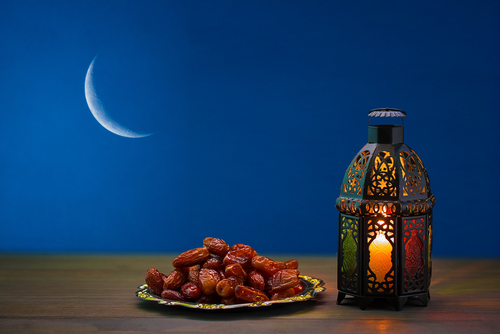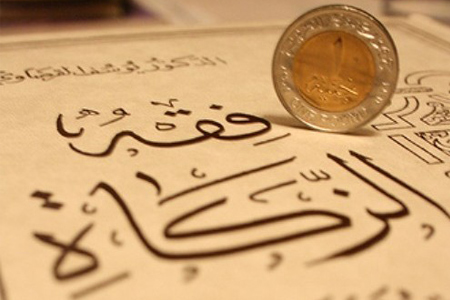Ramadan 2019 Basics
What is Ramadan?
Ramadan is the ninth month of the Islamic calendar. The Islamic calendar operates on a lunar cycle, meaning that the beginning of a month is determined by the new moon. Therefore, the calendar rotates approximately 11 days each year – meaning Ramadan will not occur at the same time every year.
Ramadan is one of the most blessed months of the year. It was the month when the Qur’an was first revealed to the Prophet Muhammad (Peace Be Upon Him) as guidance for all mankind.
The Month of Fasting

During the month of Ramadan, Muslims observe fasting during daylight hours. Fasting is one of the obligatory Five Pillars of Islam but is not just about abstaining from food and drink – it is also about cleansing the mind and purifying the soul.
This means that Muslims should refrain from any sinful acts, swearing, backbiting, hurting others, bad intentions, sexual thoughts or actions. Fasting in Ramadan is intended to be a reminder of the virtues of exercising discipline, humility and sacrifice.
It is also a reminder of those less fortunate than us who often have no choice but to fast every single day without access to any nourishment. It’s why you help provide Ramadan food packs every year for thousands of struggling families around the world.
Exemptions
There are certain exemptions to those who have to fast during this month, such as those who are ill, pregnant, or underage. Once a child has reached the baligh age (puberty) they are required to fast.
Those who are unable to fast due to factors such as illness are required to pay fidyah and those who intentionally break a fast are required to pay by way of kaffarah.
Those who cannot fast due to menstruation or pregnancy can make up their fasts back as soon as they are in a position to do so, even if this is after the month of Ramadan. However, any missed fasts cannot be observed on the day of Eid-ul-Fitr, the religious festival that occurs after the final day of Ramadan.
Laylatul Qadr
Laylatul Qadr falls within the last 10 nights of Ramadan. Known as the Night of Power or Night of Decree, it is known as the night in which the first words of the Qur’an were revealed to our beloved Prophet Muhammad (Peace Be Upon Him). This night holds much significance for Muslims as it is a night in which destiny for the coming year is decreed for them.
A night of repentance for sins, the rewards for any worship carried out on Laylatul Qadr are equal to that of a thousand months.
Charity in Ramadan
During this month, many Muslims choose to donate money or volunteer their time for charity in order to share their wealth and encourage a well-balanced society. Another benefit of this is that generosity is highly rewarded in Islam – particularly during the Holy month of Ramadan.

Not only this, but many Muslims opt to give their annual Zakat during this month too, which is a percentage of a Muslim’s profitable annual wealth. To determine how much Zakat you owe this year, use our handy Zakat calculator.
Additionally, a small contribution is to be donated on behalf of every Muslim prior to Eid salaah which is performed on the morning of Eid-ul-Fitr. This donation is known as fitrana or Zakat-ul-Fitr and is given to those in need to enable them to celebrate the festival of Eid as comfortably as those who are donating it.
Eid ul Fitr
The festival of Eid ul Fitr signifies the completion of the month of Ramadan. On this day, Muslims enjoy a breakfast with their family followed by a visit to their local mosque. Fitrana is contributed prior to the commencing of Eid salaah, which is a prayer performed in congregation.
The rest of the day is spent praying, wishing each other ‘Eid Mubarak’ (have a blessed Eid), visiting family, visiting the poor and elderly, giving to charity, eating and giving gifts to loved ones.
Eid-ul-Fitr is expected to fall on or around June 4th or 5th this year, subject to the sighting of the moon.



